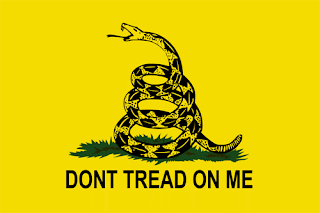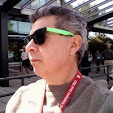Libraries and the Fight Against Terrorism
Libraries can and should be an important weapon against terrorism. "Librarians are soldiers in the war against ignorance!" Racism is fundamentally ignorance which leads to hate. This is a call out to all librarians to help end the ongoing terrorism against people of color in the US.People of color in the US live under a state of domestic terrorism. This terrorism is conducted via many official channels. The education system, law enforcement, healthcare, judicial system and other aspects of the state have been and are used against people of color in the US.
The terrorism we experience on a daily basis meets ALL the criteria below:
"Domestic terrorism" means activities with the following three characteristics: Involve acts dangerous to human life that violate federal or state law; Appear intended (i) to intimidate or coerce a civilian population; (ii) to influence the policy of a government by intimidation or coercion; or (iii) to affect the conduct of a government by mass destruction, assassination. or kidnapping; and Occur primarily within the territorial jurisdiction of the U.S.Definition from the FBI: https://www.fbi.gov/about-us/investigate/terrorism/terrorism-definition
For example, here is how law enforcement treats our children in school:
Spring Valley High School 'safety 'officer' and student
What kind of an education can on get while studying under these conditions? What kind of educational experience does this girl now have?
Libraries Against Violence
Our libraries can help mitigate this situation by providing a broader viewpoint of the world to our patrons. We can do this by pooling our resources, sharing information, planning and implementing programming that addresses the ongoing terrorism of POC by law enforcement and other state agencies.This is a country that relies on force as a first choice solution to almost ALL problems.
When force/violence is used as a tool like this, then it becomes part of the culture.
Once it becomes part of the culture individual citizens will begin to use force as a problem solving tool--just as we have seen with the increasing mass shootings in the US.
Violence and force are now normal and everyday. One turns on the television, visits a news web page, or turns on the radio, and one is confronted with a smorgasbord of violent offerings.
Librarians can help mitigate this situation by helping to educate people and offer alternative sources of information.
 |
| Contemporary lynching victim: Michael Brown |
This violence/force is most often directed at people of color in the US It is used to create contemporary lynchings--in the form of killings of POC by police. These lynchings serve to reinforce POC's lack of respect in society, the lack of value placed on our lives, and the fact that our bodies can be violated and left dead in the street as some sort of macabre warning to everyone else.
The officer in the video at the high school is practicing this kind of intimidation. He is showing the other children what is in store for them if they don't immediately fully submit to someone who might harm them.
Library/Librarian Activism
Libraries can do much to help fight against this type of terrorism. They can sponsor programming, have cultural events, reading groups, conversation groups, maker spaces, lectures and collections that can help educate the public and academia (if you work in an academic library).
A symposium sponsored by the Boston Radical Reference Collection
As librarians we can curate collections that are well rounded and that address multiple perspectives on our culture--not just the standard viewpoints adhered to by conservative anti-intellectuals (I don't think all conservatives are anti-intellectual).
We can use our spaces to hold important discussions and debates and we can help facilitate these events. Our special skills at doing research and presenting the findings in an intelligible manner can be used to help in the fight against the terrorism that POC in the US face daily.
It is our duty to help fight against terrorism.
What are some other ways libraries, librarians and other information professionals can help fight against this kind of terrorism?















.jpg)
_-_School_children_in_Florida_(Valle)%2C_in_Colombia.JPG)





